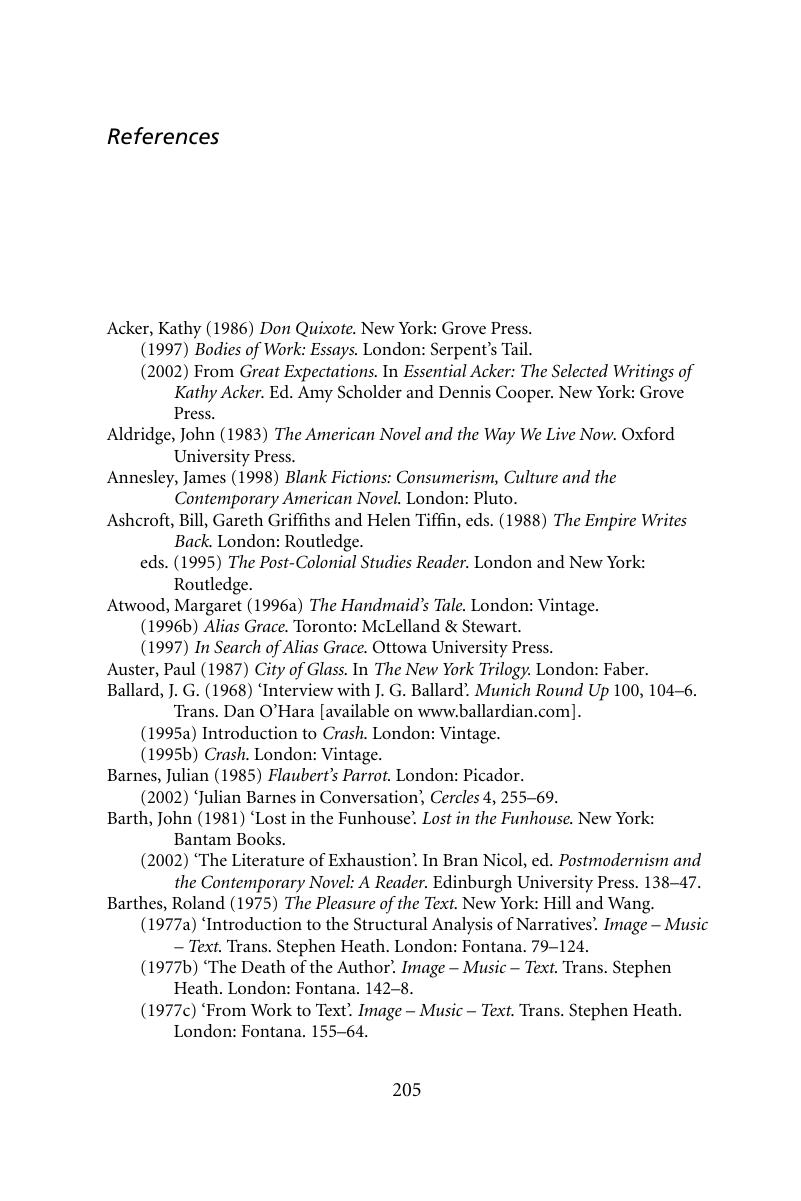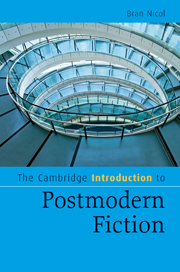Book contents
- Frontmatter
- Contents
- Acknowledgements
- Preface: reading postmodern fiction
- Introduction: postmodernism and postmodernity
- Chapter 1 Postmodern fiction: theory and practice
- Chapter 2 Early postmodern fiction: Beckett, Borges, and Burroughs
- Chapter 3 US metafiction: Coover, Barth, Nabokov, Vonnegut, Pynchon
- Chapter 4 The postmodern historical novel: Fowles, Barnes, Swift
- Chapter 5 Postmodern-postcolonial fiction
- Chapter 6 Postmodern fiction by women: Carter, Atwood, Acker
- Chapter 7 Two postmodern genres: cyberpunk and ‘metaphysical’ detective fiction
- Chapter 8 Fiction of the ‘postmodern condition’: Ballard, DeLillo, Ellis
- References
- Index
- Cambridge Introduction to …
- References
References
Published online by Cambridge University Press: 05 June 2012
- Frontmatter
- Contents
- Acknowledgements
- Preface: reading postmodern fiction
- Introduction: postmodernism and postmodernity
- Chapter 1 Postmodern fiction: theory and practice
- Chapter 2 Early postmodern fiction: Beckett, Borges, and Burroughs
- Chapter 3 US metafiction: Coover, Barth, Nabokov, Vonnegut, Pynchon
- Chapter 4 The postmodern historical novel: Fowles, Barnes, Swift
- Chapter 5 Postmodern-postcolonial fiction
- Chapter 6 Postmodern fiction by women: Carter, Atwood, Acker
- Chapter 7 Two postmodern genres: cyberpunk and ‘metaphysical’ detective fiction
- Chapter 8 Fiction of the ‘postmodern condition’: Ballard, DeLillo, Ellis
- References
- Index
- Cambridge Introduction to …
- References
Summary

- Type
- Chapter
- Information
- The Cambridge Introduction to Postmodern Fiction , pp. 205 - 214Publisher: Cambridge University PressPrint publication year: 2009

